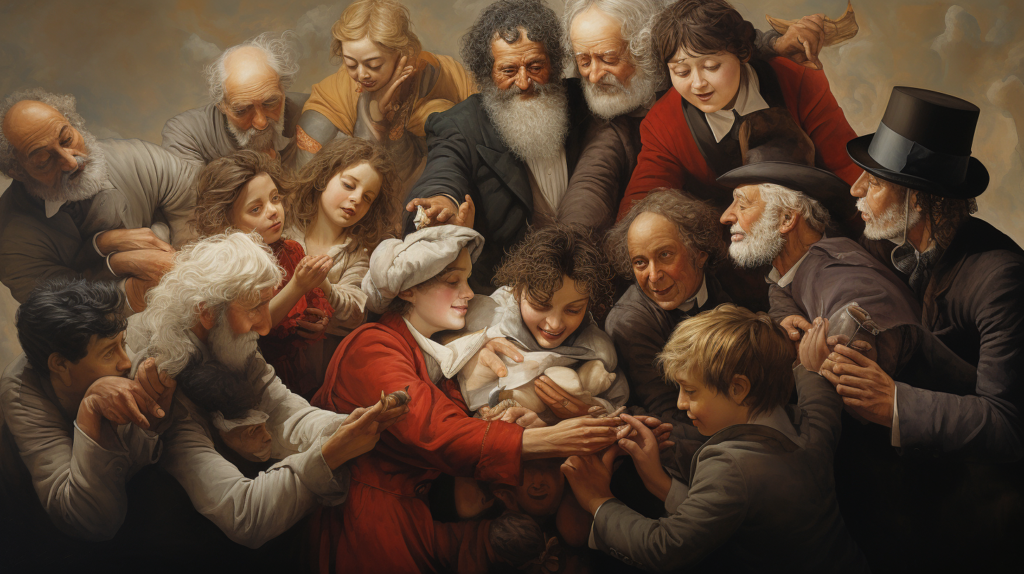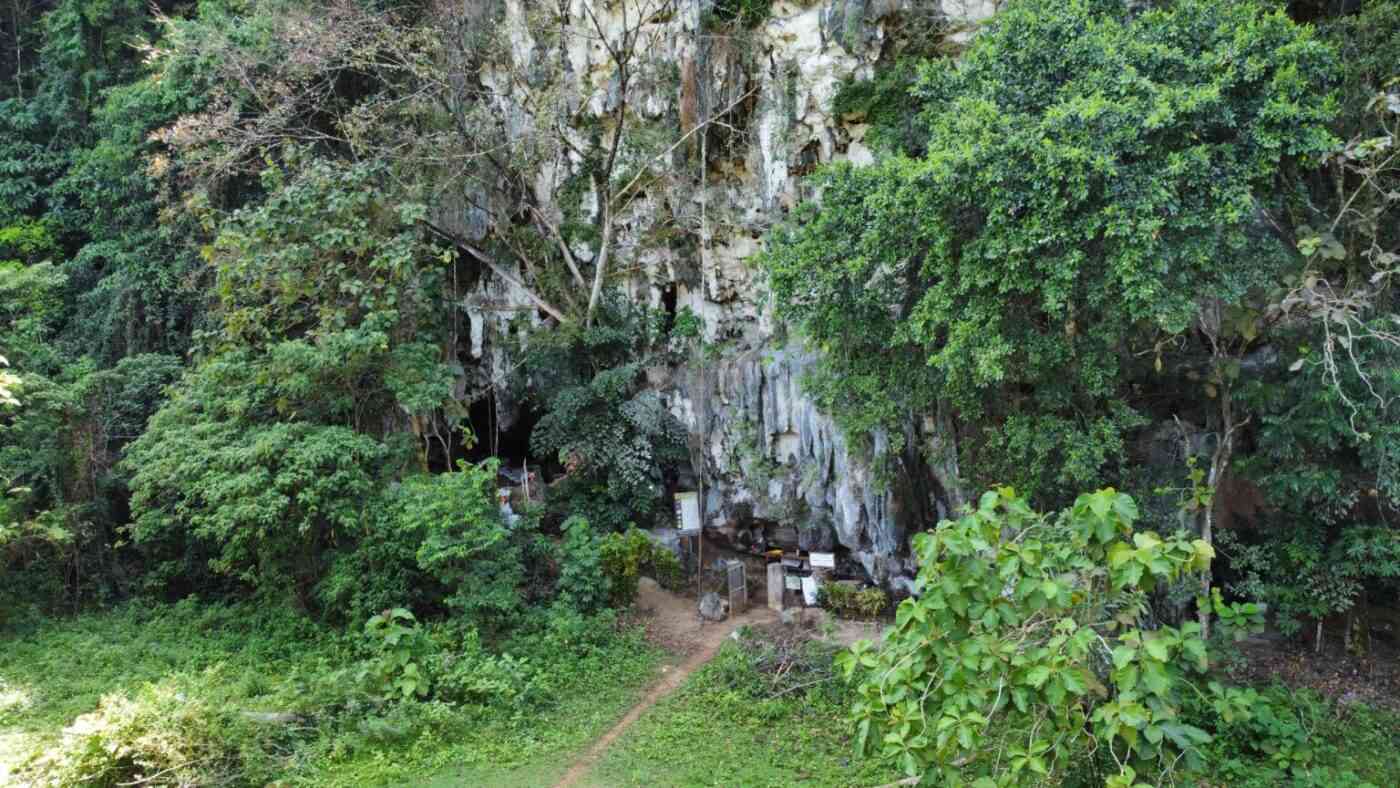Truth & Goodness
Sickles, Hammers, and Dollars: The Capitalist Miracle of “Red” Vietnam
01 March 2026

As we reflect on attitudes and behaviors specific to humans, and consider what they should incorporate into their lives to make this world a better place, we need to search for the essence of our being. We must ask ourselves: What makes us human? What activities are typical for humans and in harmony with human nature?
Hannah Arendt (1906–1975) addressed these issues in her works. Marked by the tragic events of World War II and compelled to leave Europe due to her Jewish roots, she made the problem of humanity the focal point of her post-war texts. What, then, are the typical human qualities? What, fundamentally, makes us human?
Although for Arendt’s mentor, German philosopher Martin Heidegger (1889–1976), human existence signified “being-in-the-world” (Dasein) without specific reference to other beings, for Arendt coexistence is paramount. For her, being-in-the-world with others is essential to understanding humans as individuals. She posited that one can only understand oneself through interactions with other people, within the context of building relationships, where speech plays a vital role. Arendt defined living among others as the essence of politics: every individual being is a part of the public-political space, which forms the framework for self-understanding.
In order to examine the human condition, Hannah Arendt draws from ancient Greek philosophy, from which she derives the term vita activa. This concept helps her characterize politics—understood as an activity—and the conditions necessary for its emergence. Arendt references the Greek polis, where the ideal life involved devotion to political meetings, and a good citizen was defined as someone actively involved in local political affairs. Arendt identifies three key elements in her interpretation of vita activa: labor, work, and action. This distinction seems particularly relevant and valid for modern people.
The activities mentioned above imply the individual’s active involvement in life, encompassing establishing relations with others, engaging in mutual decision-making, and participating in broadly defined cooperation. When considering humanity in the 21st century, we might question the extent to which the spirit of community and togetherness continues to form the foundation of our coexistence. It appears that in contemporary times, people are increasingly focused on developing their own egos, perceiving their lives as less and less dependent on others. The modern individual often behaves like a lone wolf, striving towards desired goals with no need for cooperation. In her book The Human Condition (1958), Arendt cautions, “we are all the same, that is, human, in such a way that nobody is ever the same as anyone else who ever lived, lives, or will live.”
Arendt views labor as a kind of practice that’s focused on fulfilling our basic existential needs. She remarks: “Labor is the activity which corresponds to the biological process of the human body.” In her interpretation, labor manifests our concerns about self-sustenance, securing food, and the necessities for survival. Its purpose lies in the cyclical production of goods for daily consumption. Labor, for Arendt, is not an expression of our free spirit; rather, it is a series of routine actions essential for continuous existence.
But does labor really boil down to mechanically repeated actions in an inevitable cycle? One might pause here and question whether this approach overlooks an important aspect for many laborers who find meaning in their work, sometimes equating it with a mission to be fulfilled. If we want to secure a better future for humanity, and steer the world towards goodness and truth, we must acknowledge the roles of doctors and nurses. They begin each day’s labor not solely out of obligation but driven by a profound desire to help others, fully recognizing the dignity of fellow beings, and the value of their lives.
If we think that humanism makes sense in the 21st century, and we aim to improve the quality of our existence, we should also value teachers. Their labor, sustained by passion even after many years, is dedicated to molding new generations in values that ensure a higher standard of culture, knowledge, and humanity for all.
Work, as described by Arendt, is the second constituent of vita activa. This activity is focused on “fabrication and production of use objects,” more durable than consumable items like food. Homo faber, the creator of systems, places humans in a web of interdependencies, as seen in environments like textile workshops or call centers. In these “factories,” individuals are treated not as unique entities but as elements of a larger whole. As no one is unique, anybody can be let go or replaced in case of a crisis. Applying Arendt’s perspective to contemporary times, we see that this type of activity has become prevalent in the 20th and 21st centuries. What counts now is making the biggest profit, and what Arendt calls work is powered by cheap labor. It must be asked, in the spirit of humanism, whether this type of activity will lead us to a better future. Work may generate more material goods, but will it also contribute to humanitarian advancements and secure our peace of mind?

Action, as described by Arendt in her book, is the most valuable and necessary activity for modern humans. Action enables us to build relations with others and simultaneously positions us as willing co-creators of the world, responsible for its direction. For Arendt, the multifaceted meaning of the word “action” is of special importance. Action can manifest in various forms: for instance, people taking to the streets to express their opinions, or responsible voters participating in elections. Another form of action is to hold a public debate, comment on the facts, share views with others, and in that way—with words—create social dialog. Arendt differentiates between two forms of action: deeds and words. Both are equally important, and what’s more, one should support the other. Words shape deeds, and deeds are the realization of words. Therefore, in Arendt’s view, action is the most fitting form of human activity. Action is dynamic in nature; it encompasses speech, dialog, and communication, as well as specific deeds and facts, making it the most advisable choice for humanity in the 21st century.
You may also like:
Hannah Arendt, in her analysis of the human condition, highlights the diversity of our activities without judging or evaluating them. Each of us can find our own space for fulfillment. Regardless of our field of activity, we should be motivated by the goal of acting for the betterment of humanity and the improvement of our reality. Reflecting on this matter with deep concern, Polish poet Anna Kamieńska (1920–1986) pondered in her poetry:
how to warn people against people
when they observe the world
without pain
and in their gaze everything
becomes a mere thing.
Read more:
Truth & Goodness
01 March 2026



Zmień tryb na ciemny